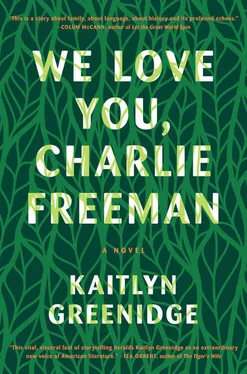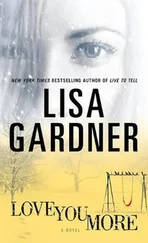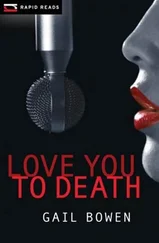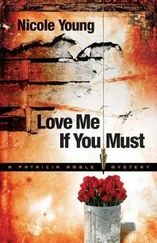I smelled their death and then I read the letter. There was no more money. That was the long and short of it, though it took Mumma ten pages to say so. They were on the verge of bankruptcy. They’d been skimming from their own till for years, and when that no longer was enough, they’d begun to take from the Stars’ and Saturnites’ treasuries. The money had all been for me. For my good dresses and elocution lessons and the Negro teachers’ college out of state, all to make me a presentable bride for a man who never came. And then they feared they had taken too much and they would be discovered. It was money that made them lose their faith. They said in the note that all of this was for my own good. They didn’t want to burden me with their disgrace. They told me to tell everyone they’d suffered strokes, simultaneously, and died together in each other’s arms. They thought this was a chance for me to make a fresh start. They still thought maybe their investment had not been in vain, that maybe I could be married — this is how I knew their grief had made them delusional.
I put down the note and I looked at them again, my father curled in on himself like a baby, my mother wide open to God. Without thinking, I took an oil lantern from the mantel and I went to the back of the pharmacy, to Pop’s office, and I smashed that lantern down, as hard as I could, into the green leather ledgers Pop used for accounts. I smashed and smashed until the books went up in flames and I stood and watched until my eyes watered and I gagged on the smoke and then I fled. I ran into the street and raised the alarm and people came with buckets but it was too late. I stood in the street and all the other Stars, the very ones my mother couldn’t face, came and stood around me. They rubbed at the soot on my cuffs and collar, they rubbed the soot on my face, and they shook their heads and said what Stars always say when one of us dies: “A good light gone.”
I watched the house burn and felt the Stars’ hands rub my back and pat my arms and all I could think of was the math. My parents poured two cups of poison, not three. They left me behind.
Have you ever heard of colored people killing themselves? And over money, too. As if a colored person has never been broke before. We do not commit suicide. That kind of nonsense is for white people. We endure. We are the masters of endurance. We get stronger and stronger until we shine like Stars. But Mumma and Pop ultimately did not believe this. And when I found out that they didn’t believe, that the tenets of the Stars were hollow words to them, I turned cold and raging inside. I turned mean.
The other Stars watched me closely after my parents died. They were waiting for me to crack, but I never did. They watched as I went to the school every day and then returned to the room I let from a retired Star named Sermon on the Mount. They knew there was something wrong, but I would not break for them.
Still, the loneliness began growing inside me, until it was a large gaping maw that, I swear, pulsed in my chest right before bed, in the morning, and in the cold, as regular as any wound. I missed my one true friend, my mother. She and I were close in a way I don’t think many other mothers and daughters were. I slept beside her every night of my childhood: so near to her back, I could probably sketch the constellation of moles and freckles on her skin there. When I was a very little girl, every morning I would wake before her and arrange myself so that when she woke, we were eye-to-eye.
I miss her, with a never-ending ache that I did not think was possible, that crowds out any other feeling and certainly all my reason, and any good sense.
DR. GARDNER BEGAN coming to Spring City at the beginning of April. He just started showing up in the evenings. At first, he didn’t come near us. He hung around the shops on the border, where Spring City meets Courtland County. The whites in Courtland County consider Spring City their Negro Quarter, but on the border are the in-between places that all of us have to use: the rail depot with the dusty cafe; the cobbler and the notary; the general store.
Everyone in Spring City knew who Dr. Gardner was because there’d been rumors about him all through town for at least a year. We knew he worked up in the monkey house. He came to Courtland County the year before, when little Julia Toneybee-Leroy, the neighborhood heiress to a rubber fortune, returned from her Congolese safari with a dead monkey and ten more live ones on the way.
Very soon, Julia Toneybee-Leroy let it be known that she wanted to convert her mother’s estate into some kind of all ape zoo, with Dr. Gardner as the head. The place used to be a music conservatory, the best to be found between Boston and New York, everyone said. The first summer after my parents killed themselves, I went there for an outdoor concert, stood on the section of lawn reserved for colored patrons of the arts, and heard a Bach concerto so sweet and sad it drew the ache of my parents’ demise from my chest and forced me to weep in public. I didn’t even cry at their funeral. I had felt all the eyes of the Stars on me, eager to see my grief. To cry in front of them would have been unbearable, an admission of defeat, a humiliation, so I bit the inside of my cheeks to keep my eyes dry. I was my mother’s daughter to the very end, till the moment they put her in her grave. But the music of that conservatory broke me down to tears and I didn’t care who saw it.
When Julia Toneybee-Leroy fired all the music teachers and sent home the students, she installed the animals in their place. We never did see the monkeys move in: just heard the ten of them making a racket in the specially equipped freight car she had run up the tracks and past Spring City on the way to the newly named Toneybee Institute for Great Ape Research. Last fall, she brought in Dr. Gardner.
Julia Toneybee-Leroy said it was all for magnificent revelations in science, shortly forthcoming, but everyone in white Courtland County and black Spring City alike thought she was just using the monkeys as a cover to have an affair with Dr. Gardner. He was supposed to be an evolutionary genius and the next Charles Darwin, if some were to be believed.
After a few weeks of lurking around Spring City’s border, Dr. Gardner got bolder and crossed over. He walked up and down our streets leisurely, waving every so often at the people he passed. He did this despite the children who would stop stock still when he saluted them, and just stare, despite the strained smiles of the women and the reluctant hellos of the men. He made a supreme effort to disregard the very obvious fact that we did not want him here. He walked around and surveyed the houses for a few days more, and then he started bringing his sketch pad. I caught him once or twice, standing near the wooden fence around my schoolyard, leaning his pad against a post and watching intently as the boys and girls cried “Red Rover.”
When Dr. Gardner slouched around our streets he made everyone in town uncomfortable, the women most of all. They asked Mr. Dawes, the undertaker, to talk to him about it. To see what was what. But Mr. Dawes said he didn’t want to get caught up in it. He said he had too much to do to worry about a skinny white man drawing cartoons and we should all have too much to do, too.
So the Stars of the Morning of Spring City got together and asked me to address Dr. Gardner. They asked me because with Mumma and Pop dead, I am alone. I don’t have any kin, not even a mangy husband or brother to protest, to say, “Why are you picking on Nymphadora?” They took advantage of the fact that I am a thirty-six-year-old orphan.
One Tuesday night after a Star meeting, Nadine Morton took me aside. We were folding up tablecloths and as we held an expanse of white lace between us, as we brought the corners together to make them kiss, she said, “Just find out what he wants. And once he tells you, suggest that perhaps he can find it elsewhere.”
Читать дальше










![Ally Carter - [Gallagher Girls 01] I'd Tell You I Love You But Then I'd Have to Kill You](/books/262179/ally-carter-gallagher-girls-01-i-d-tell-you-i-lo-thumb.webp)

